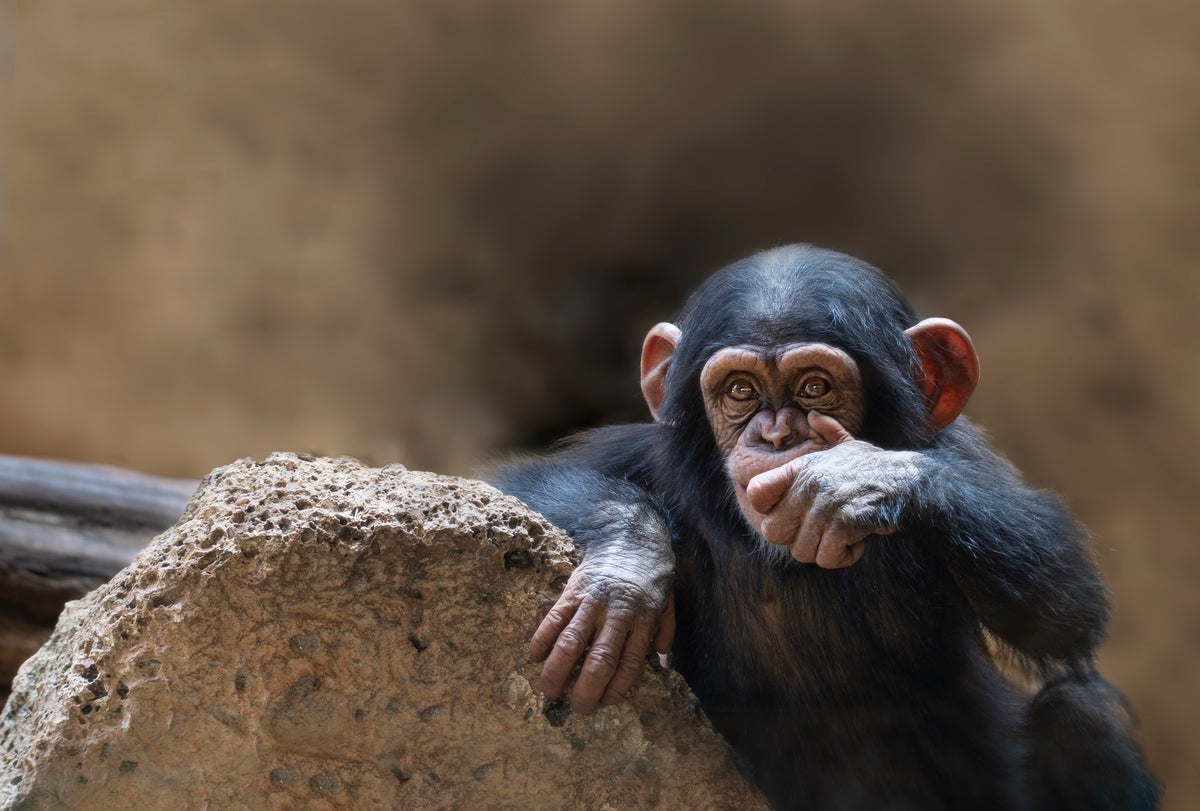
Three endangered chimpanzees have been kidnapped from a sanctuary in the Democratic Republic of Congo and are being held to a six-figure ransom, in what is believed to be the first known case of its kind.
Not only has the shelter in Lubumbashi has received “proof of life” videos showing the “terrified” chimps in a bare-brick room, one with her arms tied above her head, but also a threat that the apes’ heads will be sent next if the demands are not met.
The founder of the Jack Primate Rehabilitation Centre, Franck Chantereau, has received multiple such messages since the young primates were snatched nearly a fortnight ago, including threats to kidnap his wife and children.
With buyers paying around £10,000 for baby chimps on the black market, Mr Chantereau believes he is unlikely to see the animals again. He does not intend to pay the ransom, fearing that doing so “would put all the world’s apes at greater risk than they already are”.
Each orphaned by the wildlife trade, the most recent of the three chimps to arrive at the sanctuary had reportedly been there for only a matter of weeks, after being rescued from a market in the remote north of the country, in a journey comprising two flights and three days spent on the back of a motorbike.
“They had all been given a second chance, but now this fresh horror,” Mr Chantereau, who founded the shelter in the Katanga province 16 years ago, told The Times. Since then, he said, the illegal trade has “become a war” and the roughly 100 endangered apes at his facility are now under armed guard.
The kidnapped chimps themselves seem unlikely to have been passive observers in the most recent skirmish. Footage sent to Mr Chantereau appears to show signs of a struggle, with furniture upturned in the background.
“You can see how terrified they are,” Mr Chantereau said of the kidnapped primates, adding: “Monga is strong and probably tried to bite them. A grown chimp can kill a man.”
While there were estimated to be a million chimpanzees roaming the forests of western and central Africa six decades ago, in the space of just 40 years their number was believed to have shrunk to between 172,000 and 300,000.
Around 40 per cent of these remaining chimpanzees – humans’ closest living relatives – live in the DRC, where the Jack sanctuary is one of just three such centres, despite the animals facing multiple dire threats including hunting, trafficking, disease and habitat loss.
The alarming new crime is a worrying sign that traffickers are becoming bolder in the absence of effective law enforcement, according to Adams Cassinga, the director of ConservCongo, a group investigating and helping prosecute wildlife crimes.
“This is very rare, this is the first time, not just in Africa but the world, that I am hearing of this,” Mr Cassinga told the website Mongabay.
“We have heard [of] people using wildlife as a shield or as a political or social agenda. This is the first time I have heard of people literally kidnapping animals so that they can ask for money,” he told Mongabay in a phone interview.
“These criminals have taken the entire wildlife crime to a new level. And it demands that law enforcement agents step up their games as well. There is panic and fear.”






